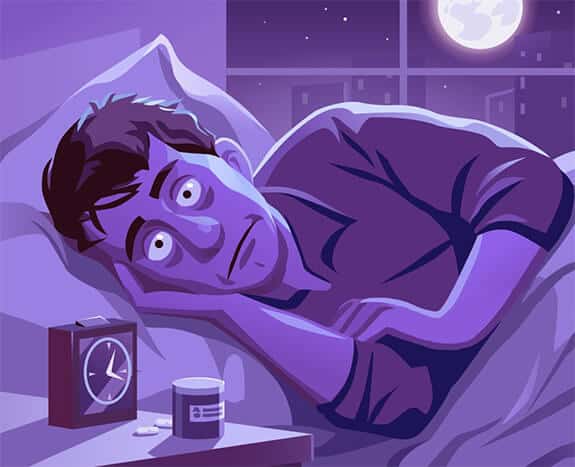In 2016, the number of people estimated to be suffering from mental health issues like depression and anxiety amounted to roughly 1.1 billion. Since then, numbers have likely continued to rise. Moreover, studies have also shown women especially on average are a) more likely to suffer from mental health issues, and b) less likely to talk about them. The taboo in Pakistan surrounding depression and anxiety disorders only serve to aggravate the individuals suffering even more. For the women who cannot seek out full time therapy, or simply need advice about their problems, we’ve enlisted the help of a trained counsellor. You sent us in your questions – here are the answers!

“I am developing a dependency on sleeping pills. I can’t sleep without them and my energy level is always strangely low. How big of a problem is this? And how do I go about solving it?”

Shahrukh’s Response:
Hi Anon,
I see that you have been having some trouble sleeping at night, and it is only natural to sometimes seek out the help of supplements or medication to help us get the rest that we need. Now before I get into the pharmaceutical aspect of this issue, let’s first talk about sleep troubles in general.
So, what’s keeping you up?
The term used for having trouble falling asleep, or staying asleep is insomnia. While this can be an isolated issue, a lot of the time insomnia can be a symptom of a bigger issue. It could stem from emotional distress, stress, anxiety, excessive caffeine intake, or even be the result of not being surrounded by proper sleep conditions. It is important to recognise and identify any stressors that might be causing the insomnia. It might also be helpful to see a mental health professional who would be able to help you explore and understand the mechanisms and causes of your sleep troubles better. Your therapist/psychologist should be able to help assess the situation and suggest the appropriate treatment for the insomnia.

Tips For Better Sleep
Avoiding caffeine prior to sleeping:
When I say prior, I mean at least 5 hours before you plan to sleep. Caffeine promotes alertness, and that’s exactly what we don’t want!
Nap Less:
Try to limit your afternoon naps. They can affect your sleep cycle and hinder
your ability to fall asleep at night. If you are going to nap, try to keep it to under an hour.
Herbal teas:
If you’re really feeling the urge to have a hot drink before bed, chamomile tea is an
excellent herbal tea to have – but make sure it’s at least an hour before bed! It has antioxidants that can help alleviate anxiety and promote better sleep.
Right Bedding:
Yes, you read that correctly. Sometimes good bedding can make all the difference to your sleep. Try to invest in pillows and a mattress that provide enough support for your back and neck. This can help promote better sleep patterns.
Meditation and muscle relaxation:
Before bed, try to incorporate techniques that will help you relax your muscles and bring your body into a state of calm.
Night-time relaxation rituals:
These are the classic ones – reading a book, taking a nice warm shower or listening to some calming music before bed. Try whatever works for you!
Consistent sleep schedule:
While this can be a little tough to maintain, it’s important to have a regular sleep schedule. Sleeping consistently at a particular time will allow your body to really settle into a routine.
Exercise:
Exercising regularly will naturally tire out your body, and can really contribute to better sleep. Try to schedule your workouts a little earlier in the day as high intensity workouts close to your bedtime can make it difficult to fall asleep.
Before bed eating habits:
Now that you’ve got your caffeine out of the way, it is also important to make sure that you don’t eat any big meals before bed, especially anything that has sugar or caffeine.

How To Go About The Mental Health Route:
Insomnia and other forms of sleeping disorders may also be the result of a chemical imbalance in the brain. That being said, it is important to consult a psychologist/psychiatrist and get a proper prescription for any medication. You mentioned that your energy levels are low and that you were developing a dependency on the medication. These can be a result of the medication you are currently taking. Once your body is used to external help, it can develop a dependency on the medication. There are different types of sleeping pills and each one will have its own set of side effects, and affect the body differently. While medication can help, it is essential that you seek out the guidance of a mental health practitioner to see if that is a step that needs to be taken. If need be, your practitioner will refer you onto a psychiatrist who will guide you through the process of taking the medication, and if necessary, going off the medication. In addition, try to explore what might be causing your insomnia and see if there are other avenues which can assist in improving your sleep cycle, like the techniques and tips listed above. Having a consistent sleep cycle is something that can really make a difference in your mental health, so it is important to keep it as stable as you possibly can. I really hope that this was helpful and that you get the help that you need. I wish you all the best, Anon. Take care of yourself.
Good luck!










What do you think?
You must be logged in to post a comment.